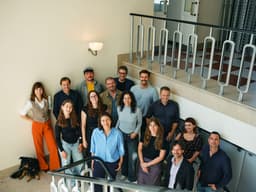
Baynana, the first media outlet created by Syrian refugee journalists in Spain
They fled the war and now seek to break stereotypes by giving a voice to the voiceless. But not everything is so easy in a media industry in crisis
The Fix Newsletter
Everything you need to know about European media market every week in your inbox
61 articles • 0 Followers











